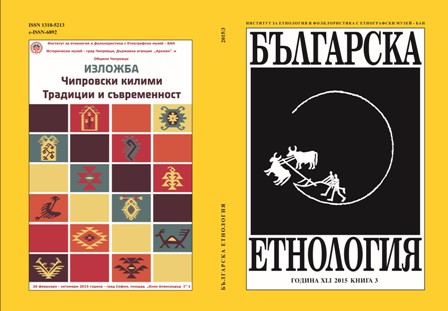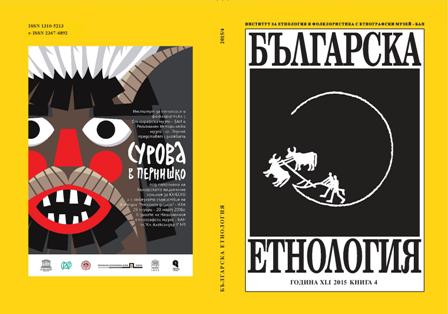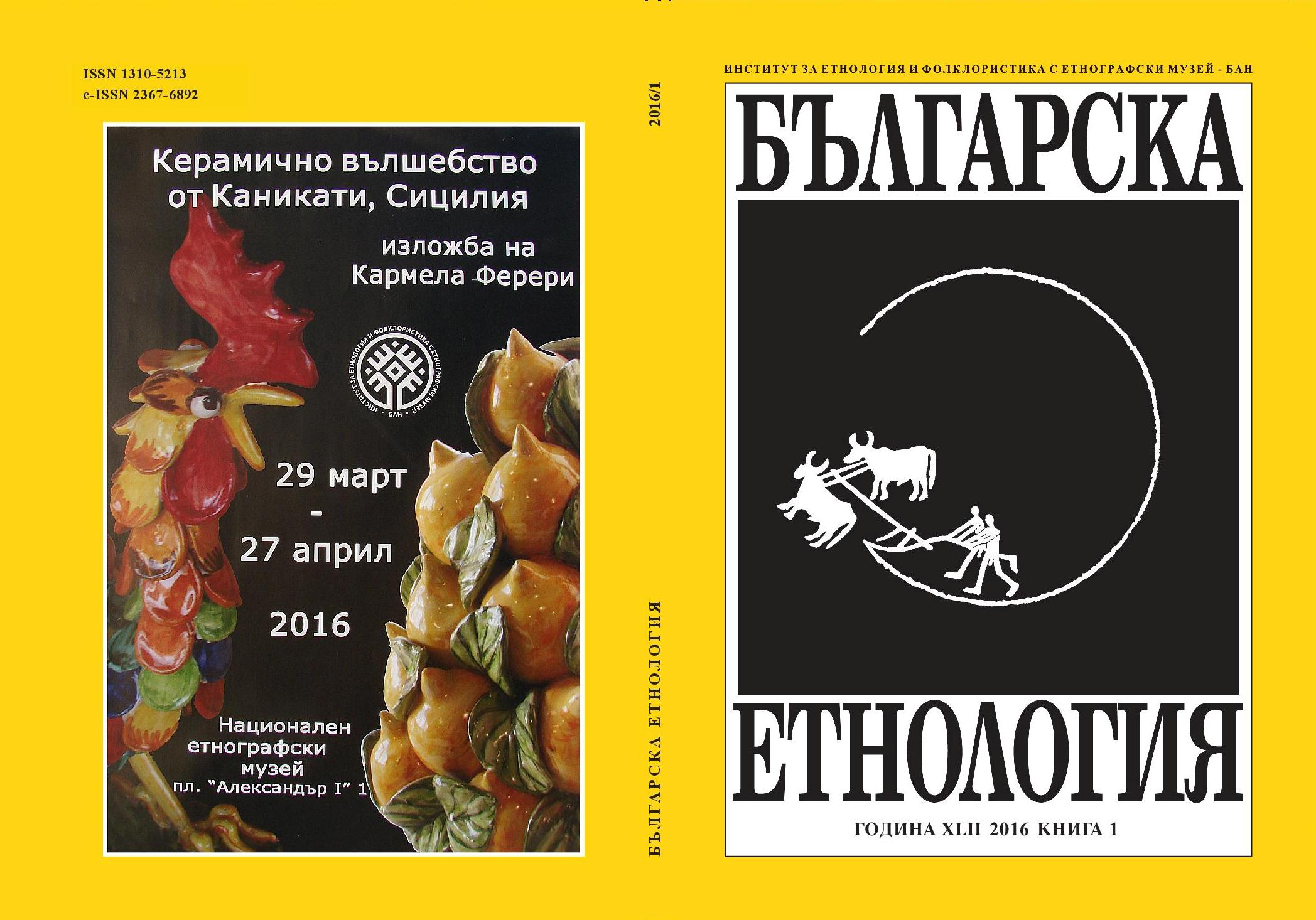


Keywords: anthropology;social sciences;nationalism;
The paper analyzes and compares four theoretical approaches to the notion of nationalism as well as the following cognate notions embraced under its umbrella: nation, ethnic, religion. These approaches differ mainly regarding their axiological foundations, regarding the values accepted as socially significant. The typology applied to the research methods of identity studies is used here as epistemological optics of the analysis: 1) the essentialist approach, relating it to the ontological substratum, and 2) the anthropological approach, understanding it as a psychological construct. The importance of the analysis for the methodological foundation and self-reflection of the concrete ethnologic studies is emphasized.
More...





Keywords: anthropology;cinema;
The article gives a rough overview about the development of cinema in the Balkan countries in the interwar period which was characterized by a low level of economy. Especially, the countries lacked industrial infrastructure which was a precondition for a flourishing cinema life from its very beginning. Therefore, cinema played only a marginal role in the agrarian Balkan countries. It was practically confined to the urban space. The European cinema market was dominated by international US-American and German film producers. In the Balkans a domestic film production could hardly emerge. The introduction of the talkie deteriorated conditions for domestic film pro¬duction because of the increasing production costs. Cinema could only become a mass phenomenon after the period of scrutiny when industrialization enabled mass consumption, also of films, in the 1950s and 1960s.
More...
Keywords: anthropology;history;cinema;
The article dedicated to the earliest film shows in Sofia studies the information on them in the periodicals as an evidence for the life in the capital city in the end of the 19th century. It reveals the richness of information on the style of living of the inhabitants of the capital of that time, on their customs and relations, on the level of their culture, the architecture of the city, its established traditions, even on the refinements of some crafts.
More...
Keywords: anthropology;cinema;communist dictatorial regimes;
The article discusses one particular film, “Man, don’t get angry”, with director Ivaylo Trenchev and script-writer Kiril Topalov. By analyzing published opinions and reviews as well as archival materials the author notes specifics in the functioning of the socialist mass media and traces out institutions and mechanisms for controlling the cinema process. These are mechanisms which affect the view/perception and visual re-creation of the world, the writing and talking, the thinking and attitude of the people in their different roles – (film-) makers, spectators and readers, journalists and reviewers. blicistically carnival. The reader of the novel and the spectator of the movie ejaculate with one voice: this is impossible be¬cause it is...true! From Aleko (Konstantinov) to Alek (Popov) – it‘s all true...
More...
Keywords: anthropology;cinema;
The text discusses the nature and functions, the aesthetic and ethical vision of the comedy and its postmodern transformations; the social messages of the Bulgarian comedy film and the phenomenon of the movie script based on literary work. The article problematizes the relations between the commercial cinema product of high quality and the aesthetic value of the contemporary literary work which has turned into classic. The film of Dimitar Mitovski turned out to be a real competitor of the brilliant parody novel of Alek Popov. And the plot of „Mission London“ became a byword for the initially wrong model of the „Bulgarian transition period“. The ever¬lasting theme of We and the Others which has become a mental stereotype of every peripheral culture is presented in the spirit of our native traditions but also in an odd way, grotesquely realistically, sadly funny, put CKS OF A MOVIE.The text discusses the nature and functions, the aesthetic and ethical vision of the comedy and its postmodern transformations; the social messages of the Bulgarian comedy film and the phenomenon of the movie script based on literary work. The article problematizes the relations between the commercial cinema product of high quality and the aesthetic value of the contemporary literary work which has turned into classic. The film of Dimitar Mitovski turned out to be a real competitor of the brilliant parody novel of Alek Popov. And the plot of „Mission London“ became a byword for the initially wrong model of the „Bulgarian transition period“. The everlasting theme of We and the Others which has become a mental stereotype of every peripheral culture is presented in the spirit of our native traditions but also in an odd way, grotesquely realistically, sadly funny, publicistically carnival. The reader of the novel and the spectator of the movie ejaculate with one voice: this is impossible because it is...true! From Aleko (Konstantinov) to Alek (Popov) – it‘s all true...
More...
Keywords: anthropology;history;biographical research;
More...
Keywords: anthropology;project;
More...
Keywords: anthropology; cultural event
More...
Keywords: anthropology;hungary;
More...
Keywords: anthropology;cinema;
More...
Keywords: anthropology;anthroposophy;
More...
Keywords: anthropology;conference report;
More...

Keywords: ethnology;cinema;Sofia;
More...